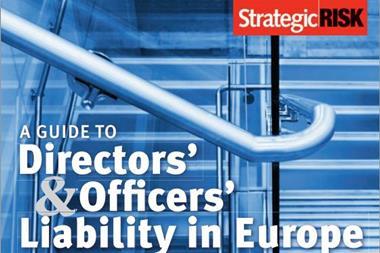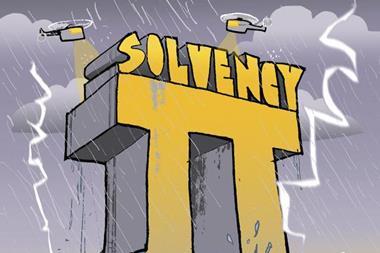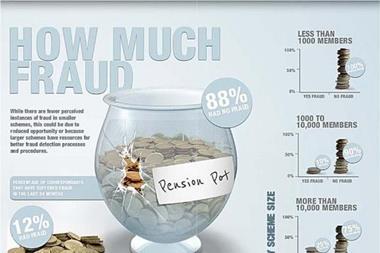Harmonisation of employment law throughout the EU should follow seamlessly from the directives issued by Brussels. In practice, the directives are adapted and interpreted in different ways, according to varying timescales.
EU member states can also invoke various opt-outs, so that while France, for example, may rigidly apply maximum working hours across the board - now subject to slight liberalisation - the UK effectively leaves the choice to the individual.
Any multinational hoping to codify its employment terms across all countries and branches in Europe may find it an impossible task. There are too many loopholes, anomalies and differences in working practices.
In the UK, there is a tendency to incorporate much of the spirit as well as the letter of EU directives. The difficulty for employers arises when some of the new laws are tested. This will firstly be through grievance procedures (now compulsory in terms of format and timetables), then through the employment tribunal system, and subsequently in the courts. Many end up in the appeal court or House of Lords for final adjudication.
Each new regulation produces a flurry of claims, usually peaking within 18 months of their introduction, and replaced by the next new regulation that is seized upon for claims or challenges.
In the case of discrimination at work, we have gender, disability, sexual orientation, religious beliefs and race/ethnicity to consider. The next hurdle is age discrimination. By the close of 2006, this will have its own chapter in the law books.
Why such concentration on discrimination? The answer is straightforward.
UK tribunals make awards for issues such as wrongful dismissal based on a formula for compensation, with awards being capped. A basic award is a maximum of £8,400, and the maximum for unfair dismissal is £56,800.
Lawyers acting for employees therefore look first at the possibility that some form of discrimination occurred - any form of discrimination carries the possibility of an unlimited award. These have frequently been in the hundreds of thousands, with a few topping £1m.
The following are some of the current hotspots:
Stress
However pleasant the workplace, stress arising from money and marital problems can affect job performance. Pressure of work may well exacerbate problems to the extent that the employee attributes stress to the employer.
Provided the employee is given access to counselling at any time, prior to problems coming to a head, this is usually deemed sufficient to shift liability for stress away from the employer. It is up to the employee to take advantage of the service. Stress counselling is often part of a package available to staff and their immediate families as a benefit provided with commercial insurance.
Unfair dismissal
If an employee is unfairly dismissed, or believes they had no alternative to leaving, a claim to a tribunal for unfair dismissal is almost always pursued. Because awards are capped, there is the temptation to claim on several fronts, especially alleging discrimination.
Discrimination
GENDER: It has now been ruled that the act of discrimination does not in itself have to have a sexual content. For example, a manager who always tells off female employees for being late back from lunch, yet tolerates lateness in their male colleagues, could be taken to tribunal.
AGE: 2006 will see the deadline arrive for the outlawing of ageism. Employers have very little time left to prepare for this, and the guidelines are not due for some months yet.
RACIAL DISCRIMINATION: Who is to blame when racist remarks are made in the workplace - the employer or the person making the comments? Following appeals, tribunals are now required to apportion blame irrespective of the ability of the employer or harasser to pay compensation, and it has been ruled they should be liable on a joint and several basis.
RELIGIOUS BELIEFS: Few claims have been made to date, but the pace is accelerating. Early claims on this relatively new legislation focused on holiday rights for those wanting to enjoy religious festivals. The rules have been used equally by Christians who want absence to attend church on Sundays, and those of other faiths. Judgments have been made according to 'each case on its own merits'.
In Northern Ireland, race hatred laws have been in place much longer than elsewhere in the UK. They have tended to be invoked with relative frequency. Similar UK legislation is likely to have more of a criminal content than a social aspect that would apply in the workplace.
DISABILITY: Discrimination can arise if employers do not make adequate provision for employing people with disabilities, and in some cases positive discrimination may be required. The House of Lords has ruled that this could apply where a less qualified candidate with a disability should be preferred: provided they are suitable for a job, they should be favoured over the best candidate.
Assess your risk profile
Broadly, the employee has the upper hand, and the burden of proof generally falls on the employer to show that it has not acted unfairly or unlawfully.
This makes it imperative that companies assess the risk profile of their business (especially if it has a branch network or operates across borders).
Employment audits, along with health and safety checks, are now available as part of the risk assessment process for EPL (employment practices protection) insurance.
- Rhian Gait-Parker is advice manager for DAS Legal Expenses Insurance Co Ltd, www.das.co.uk



















